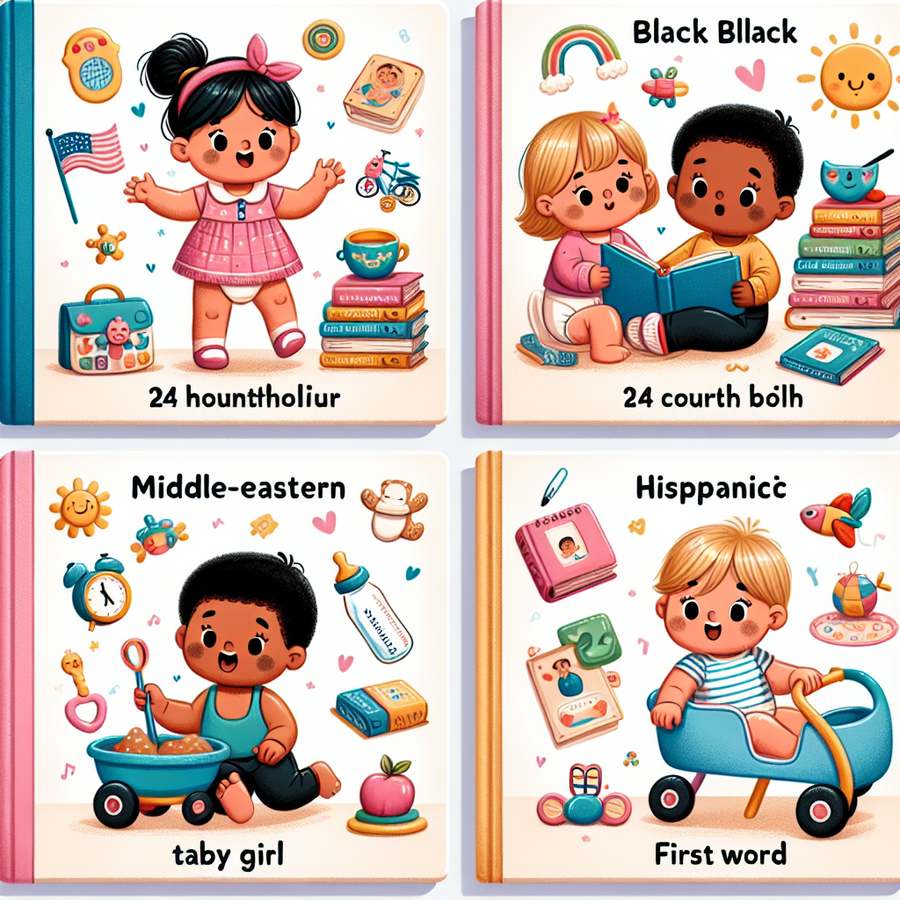Understanding the Milestone checklists for the first 24 months of your child’s life is crucial for tracking their development and ensuring they are on the right path. These checklists serve as a roadmap to help parents and caregivers identify and celebrate each new skill their little one achieves. From rolling over to taking those first precious steps, every milestone is a testament to your baby’s growing abilities.
The Importance of Early Milestone Tracking
Tracking developmental milestones in the first two years is essential not just for the excitement of witnessing first-time events but also for identifying potential developmental delays early. By keeping an eye on your child’s progress with a Milestone checklists for the first 24 months, you can work closely with healthcare providers to ensure your baby gets any needed interventions as soon as possible.
Moreover, these checklists can guide parents in providing the right kind of stimulation at the right time. Activities that support visual, auditory, and motor development can be tailored to the child’s developmental stage, making playtime both fun and beneficial. For instance, encouraging tummy time is essential for strengthening the baby’s neck, shoulder, and arm muscles, paving the way for crawling and walking. Learn more about the importance of tummy time here.
Milestone Checklists for the First 24 Months Explained
The Milestone checklists for the first 24 months cover various developmental areas including physical (gross and fine motor skills), cognitive, language, emotional, and social development. Each area has its own set of milestones that most children are expected to achieve by a certain age. However, it’s important to remember that all children develop at their own pace, and slight variations are typically not a cause for concern.
During the first few months, the checklist focuses on your baby’s ability to make eye contact, follow objects with their eyes, and respond to sounds. As your baby grows, milestones include babbling, sitting without support, understanding simple words, and starting to explore the world around them. By the end of the first year, many babies are ready to take their first steps, a momentous occasion for any parent. The second year of life sees the expansion of language skills, the beginning of pretend play, and the development of more complex emotions and social interactions. For more detailed information, visit our complete milestone checklist for the first 24 months.
Enhancing Development Through Play and Interaction
Enhancing your child’s development involves more than just monitoring; it requires active involvement and support. Engaging in play that aligns with your child’s current developmental stage can significantly boost their growth. For instance, simple games like peek-a-boo and singing songs can greatly aid in language and emotional development during the early months. As your child approaches their first year, puzzles and building blocks can support problem-solving skills and fine motor development.
It’s also crucial to encourage activities that promote social skills and emotional understanding. Playdates and group activities, even at a young age, can provide valuable lessons in sharing, empathy, and cooperation. Encouraging your toddler to express their feelings and recognize those of others lays a foundation for emotional intelligence. For more ideas on fostering creativity and understanding, check out our guide on fostering creativity and imagination in toddlers.
In conclusion, the Milestone checklists for the first 24 months are invaluable tools for parents and caregivers. By understanding what to expect at each stage of your child’s development, you can provide the support and stimulation they need to thrive. Remember, every child is unique, and reaching milestones at their own pace is perfectly normal. The most important thing is to enjoy the journey and celebrate each new achievement along the way.
For further reading on supporting your child’s development, consider exploring resources on navigating the social milestones of a 2-year-old or how to support emotional development in the first year. These guides offer insights and strategies for nurturing your child’s growth during these formative years.













